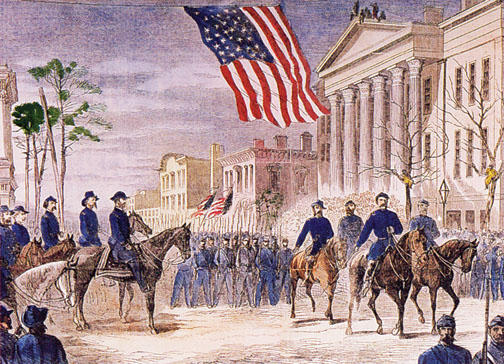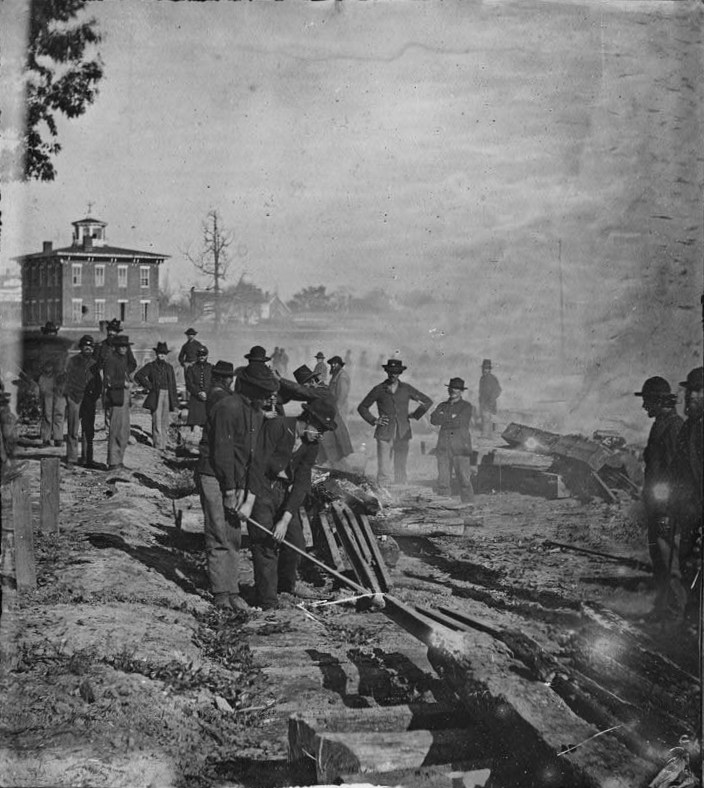
#OTD in 1865 Gen. William T. Sherman’s army is rained in while in #Savannah, Georgia, delaying the march through the Carolinas. 

During the fall of 1864 Sherman’s troops destroyed everything in their path as they marched across #Georgia. They destroyed railroads, stole livestock, and famously burned most of #Atlanta. 

After capturing Savannah just before Christmas, they stopped for 3 weeks to rest and resupply, during which time Sherman made his headquarters at the Green-Meldrim House. After resting they planned to head north through the #Carolinas. 

On Jan 17, 1865 a downpour began lasting 10 days. #Sherman’s army was unable to move until the end of January, continuing the scorched earth campaign through the #Confederacy. On April 26, 1865 Sherman accepted the surrender of Confederate Gen Joseph E. Johnson at #BennettPlace. 

• • •
Missing some Tweet in this thread? You can try to
force a refresh









